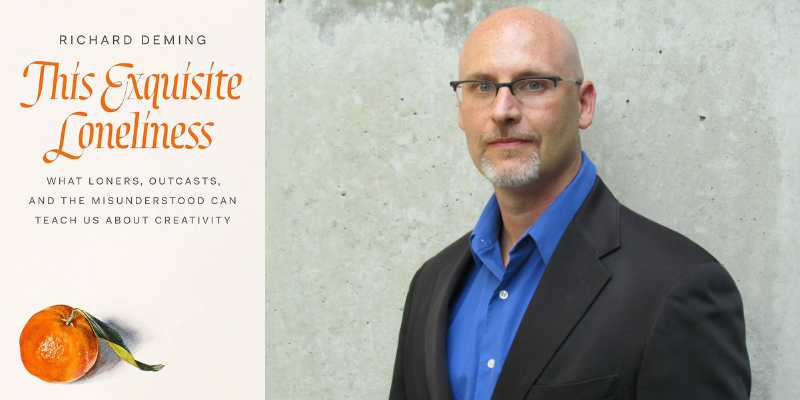Richard Deming on Boy George, Bowie, and Not Feeling Alone
In Conversation with Mitzi Rapkin on the First Draft Podcast
First Draft: A Dialogue of Writing is a weekly show featuring in-depth interviews with fiction, nonfiction, essay writers, and poets, highlighting the voices of writers as they discuss their work, their craft, and the literary arts. Hosted by Mitzi Rapkin, First Draft celebrates creative writing and the individuals who are dedicated to bringing their carefully chosen words to print as well as the impact writers have on the world we live in.
In this episode, Mitzi talks to Richard Deming about his new book, This Exquisite Loneliness.
Subscribe and download the episode, wherever you get your podcasts!
From the episode:
Mitzi Rapkin: The people you profile in your book are dealing with existential loneliness and external circumstances and conditions that impacted their lives that we can’t always help.
Richard Deming: I was thinking about this the other day, I was watching a very short interview with Boy George about David Bowie, and they asked him what did David Bowie mean to you? And he said that here he was growing up in suburban England, and he said, You know, I felt like I was wrestling with my identity, and I was an adolescent. And suddenly, I heard Bowie through the walls of my brother’s bedroom, and Boy George said, I suddenly felt like, if Bowie existed, then I’m not alone and Bowie gave me all permission to think about identity and who I am. And then, you know, he becomes Boy George, which is fascinating to me, because Bowie was really important to me, I’m younger than Boy George, and I’m not at all like, Boy George in a lot of ways, but also had a similar experience and so I was like, Oh, this also matters to me that Bowie, who was very consistently insistent about loneliness and alienation being part of his dynamic, that that was something that could speak in different ways to people, but in the same way very, very, very powerfully. And what then is interesting to me, too – is this is well after I finished the book – I heard that young Boy George, I can’t remember George’s last real last name, but he hears it as an adolescent, and then becomes Boy George, and writes music and becomes this big icon of the 80s. And so then other people hear his music, and I hear Bowie, and I write a book about loneliness. And Bowie himself is creating music and performing out of his loneliness. And so that’s kind of like the ideal economy of this for me that like, you express it in such a way that other people feel a kind of recognition, acknowledgement and permission to do it, as well. I think it’s really powerful. It’s kind of like you know you begin by singing along with the car radio and then you write a song and then you perform. That’s the chain of expression in which you can recognize others and recognize yourself.
***
Richard Deming is a poet, art critic, and theorist whose work explores the intersections of poetry, philosophy, and visual culture. His collection of poems, Let’s Not Call It Consequence, received the 2009 Norma Farber Award from the Poetry Society of America. His most recent book of poems is Day for Night. He is also the author of Listening on All Sides: Toward an Emersonian Ethics of Reading, Art of the Ordinary: the Everyday Domain of Art, Film, Literature, and Philosophy, and This Exquisite Loneliness: What Loners, Outcasts, and the Misunderstood Can Teach Us About Creativity. He teaches at Yale University where he is the Director of Creative Writing.




















